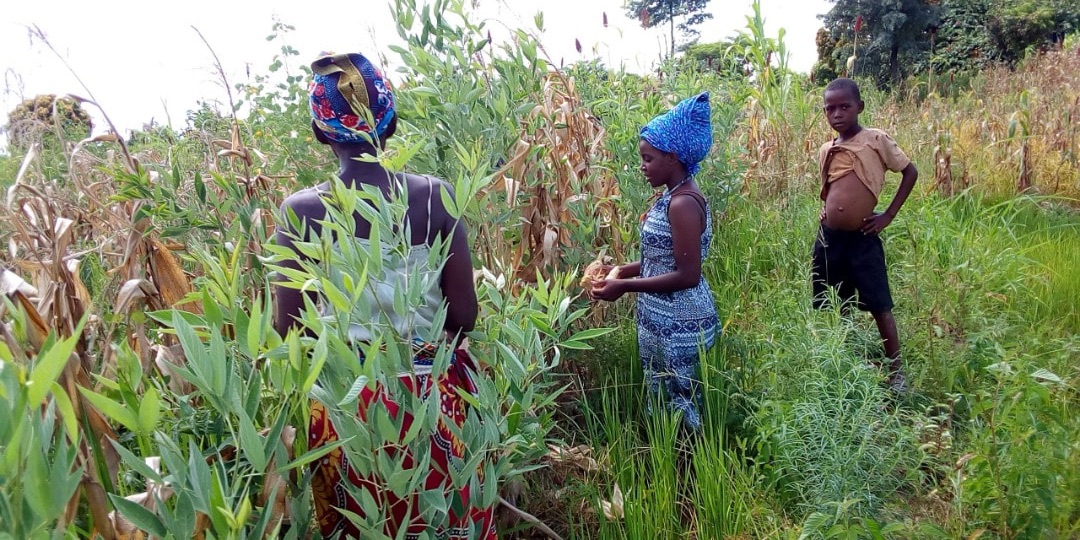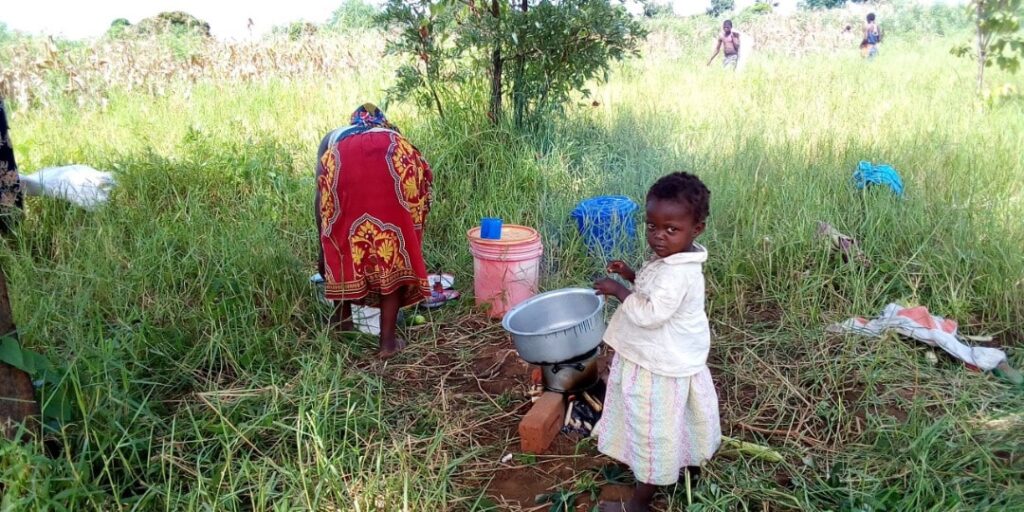Written by CorpsAfrica/Malawi Volunteer Ms. Margaret Magombo
Going through the villages now it’s no longer green in the fields, it’s brown, and it’s harvest season. This is a period where the farmer is expected to smile after investing everything. 80 percent of Malawians live in rural areas and sorely depend on subsistence farming, which is largely dominated by food crops. Unfortunately, the food doesn’t even last the whole year as expected due to several factors that include poor farming practices and inputs, post-harvest losses due to poor storage and handling of produce, and the worst part, selling off the very few harvests at exploitative prices. So I spared some time to interact with the farmers. I joined Naliyela, a very hardworking lady, at her farm and helped with harvesting whilst sparking conversations.
Naliyela (not her real name) together with her daughters and her grandchildren work tirelessly to gather their harvest. Naliyela is 61 years old and has nine children and 39 grandchildren. She depends on agriculture for survival like the rest of 80 percent of Malawians. This year she planted maize, groundnuts and rice. As I offered to help her, the family was happy and curious of my generosity. One of Naliyela’s daughters recognized me and welcomed me with a warm greeting. “Takulandilani alangizi,” which means you are most welcome our advisor. She then introduced me to the rest of the family members before I could introduce myself. Finally, I was part of the family. Although this year Malawi has registered high yields, that’s not the case with Naliyera and her community. The area received a lot of rain, which flooded the farms and it affected the crops and yield not sparing Naliyera who solely depends on farming.
Through our conversation, it was clear that Naliyera’s family was determined to achieve food security. She disclosed how harvest seasons makes her nervous and on edge as yields tend to foretell coming misery. She further added her fear of keeping safe the little yields harvested. The case of Naliyera’s family is identical to many others in the area. Food security seems to be a battle that seems tough to be won. Despite natural conditions that affect food production, it was very clear in our conversations that members in the area are doing their best in order to achieve food security.
They do have a greater role to play to have food throughout the year. Crop diversification, irrigation farming and economical management of food resources are within their reach. What they need is support in expertise and simple farming technologies. From my observation, most families have enough food to last them to the next harvest season, only that poor management and economic constraints make it difficult for the harvest to last a year. Look at this scenario, Naliyera has four grandchildren whom she must pay school fees for. With agriculture being her only means of income, each year she is forced to sell her farm produce to raise money for the school fees. Because of the exploitative nature of the produce market, especially towards local farmers, she gets low prices for her produce and has to sell a lot of it to raise enough money. Naliyera is amongst the 1 million plus Malawians who end up staving or in need of food rations despite the outcome of the previous harvest. This is a terrible vicious circle that needs to be tamed if the country is to achieve social economic development. Through our conversation, I managed to bring some insight and brainstormed some ideas on how she can maintain enough food for her family whilst supporting her grandchildren’s education.
Some of the solutions stressed included agricultural diversification, animal husbandry especially goat farming, joining village servings groups and running a small-scale businesses amongst others, which would set as an alternative source of income to finance the education of her grandchildren whose futures depends on education if we are to entirely cut off this poverty circle in this country.


